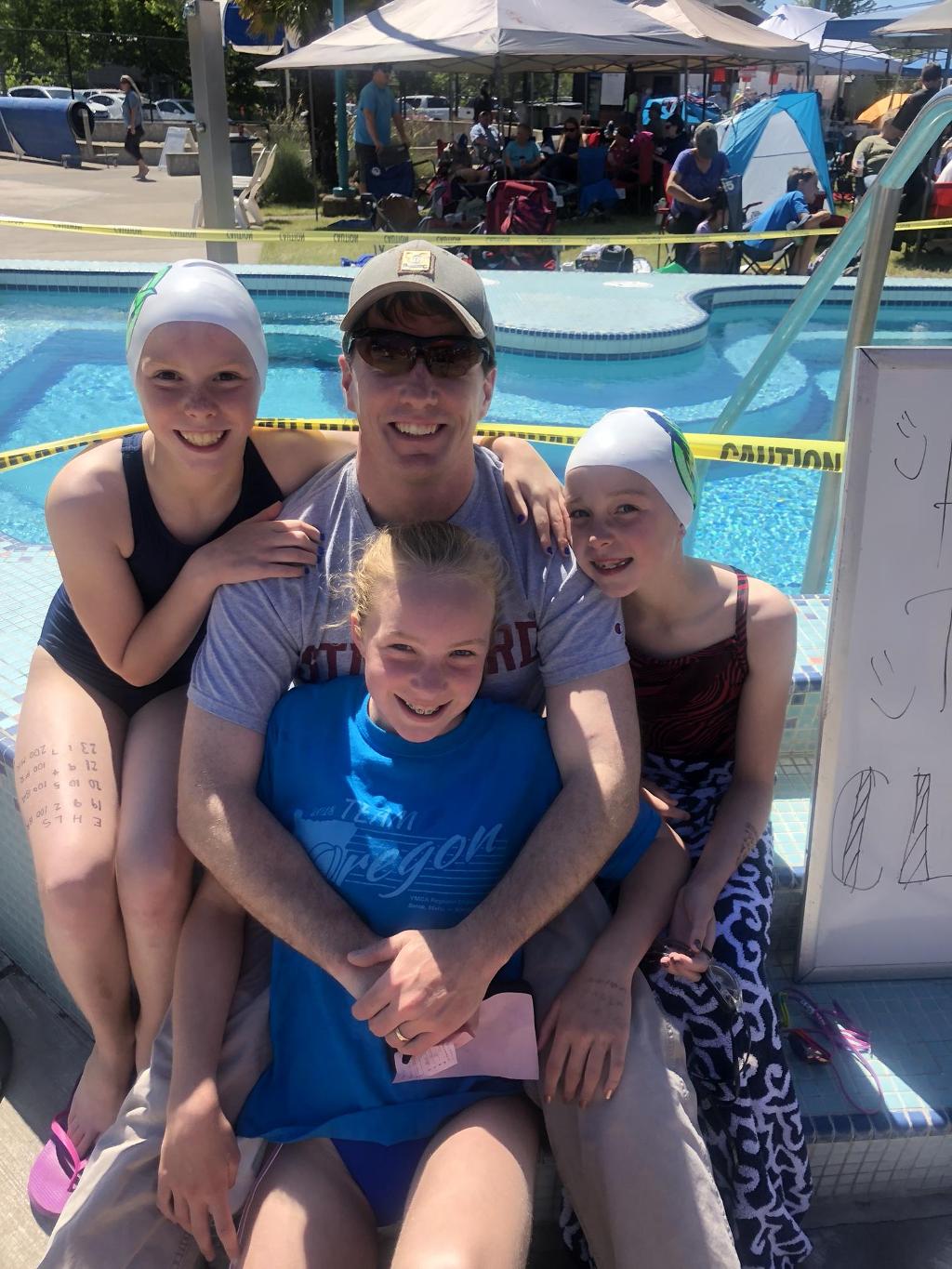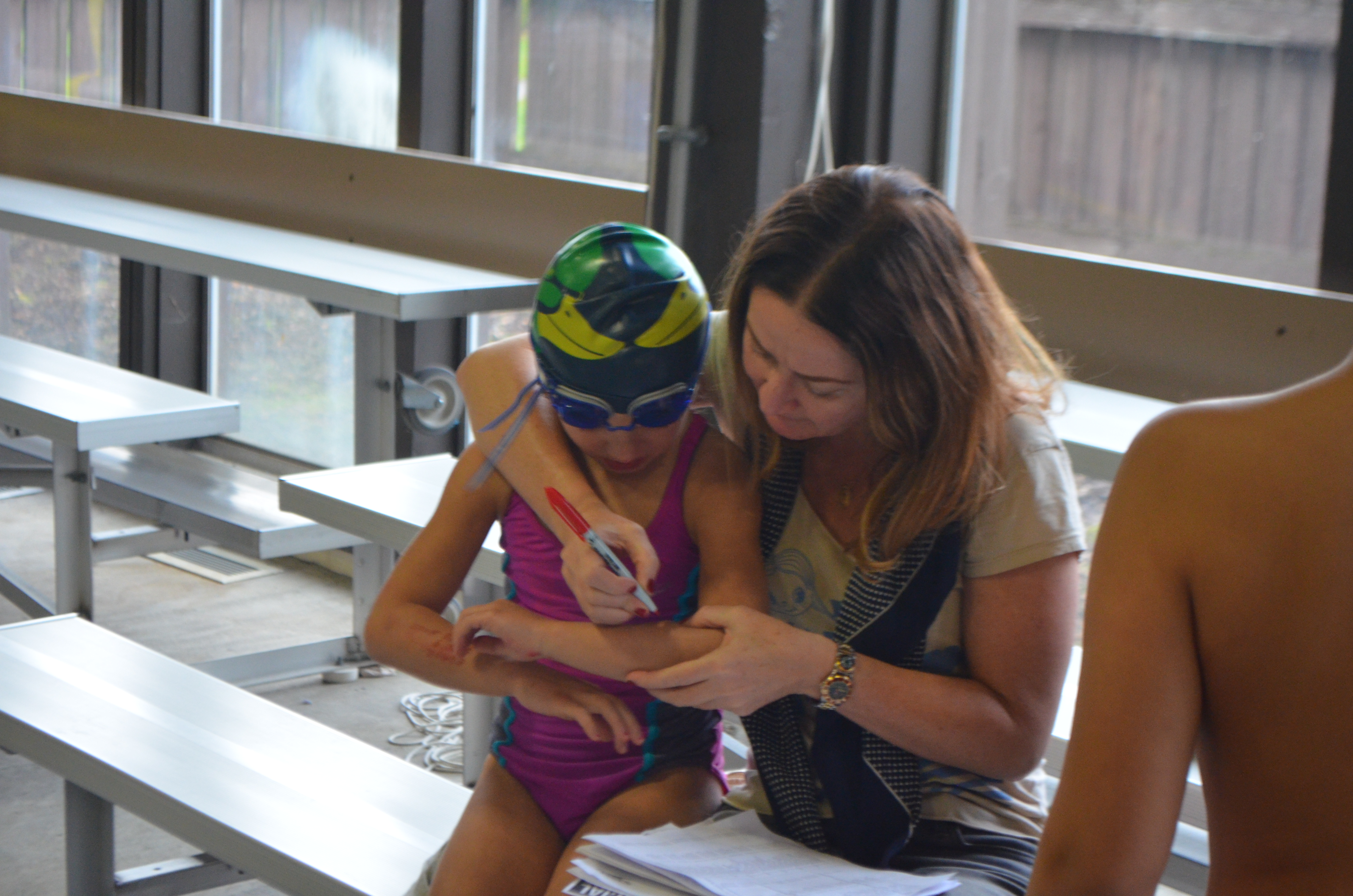
Swimming is one of the best sports out there! Swimmers learn to set goals, work hard, and stay focused. Swimmers learn how to cope with stress, stay healthy, and make good decisions.
Here are the top 10 things you can do as a parent to help your swimmer reach their highest potential in this AMAZING sport:
1. Keep it positive-Talk positively about the sport, about how they are training and what they are doing. Do not complain about getting them to practice or about long meets. Be an example.
2. Enforce commitment- It takes hard work and commitment to see results and success. You can help your swimmer by enforcing the commitment that they made at the start of the season. Discipline and commitment are good things, not things we should downplay, hide, apologize for, or (worst of all) stop demanding because it may be unpopular. If you want to enjoy swimming, even more, commit more of yourself and swim fast! You do not become excited about an activity you don’t do well at.
3. Do not "reward" with less practice-Skipping out on practice should never be offered as a reward or a benefit. This sends the wrong message to the swimmer. Swimming, practice, and hard work should be looked at as positive things that the swimmer gets to do. On the same note do not punish a child with practices.
4. DON’T coach your kids. If the swimmer is hearing one story from his coach and another from his parent, we have one confused swimmer. A swimmer must have trust in his coach and in the program, and he will not if his parents are implicitly telling him that they know best.
5. Work with the coach-If you are concerned about ANYTHING with regards to
 swimming and your child, please talk to a coach. DON'T talk to the swimmers or other parents about things you are upset with. All TEAM coaches are here for your swimmer and if something is wrong we want to know about it!
swimming and your child, please talk to a coach. DON'T talk to the swimmers or other parents about things you are upset with. All TEAM coaches are here for your swimmer and if something is wrong we want to know about it!
6. Be on time-This means practices, swim meets, and parent meetings. We know all families have a lot on their plates, but making swimming a priority will show your child that you care about what they are doing.
7. Let them fail-Building a resilient kid is something that will benefit them greatly long term. Your swimmer may be struggling to work hard in practices and then sees some slow times in a season. It's important for swimmers to understand that relationship and to get up and try again. Let your swimmer be responsible for their own time management at practices and swim meets once at the meet. This may mean they get in late sometimes or even miss a race, these are learning experiences that will help them to be more prepared in the future.
8. Put the focus on the hard work at PRACTICE -Swimming fast at meets is a result of working incredibly hard at practices. It's not realistic to take a swimmer away for a week vacation before a big meet and then attempt to bribe them for a fast time in a swim meet. Help your swimmer by putting the emphasis on the hard work and the practices. Help them to get to the number of practices that support their goals.
9. Encourage your swimmer to communicate with their coach-At a young age this is especially tricky. Swimmers often don't want to bother their coach or find it easier to just tell parents to tell their coach. Encouraging swimmers to talk about swim problems with their coach will help to build the important swimmer/coach relationship. It will also help them to problem solve on their own as well as build their independence in the sport.
10. Let them have fun!-At practices on of the goals of our coaching staff is to help show swimmers that hard work can be fun. In addition to that, we look to other things like building friendships, goofy relays and the occasional cannonball contest to aid in that process. Do not make "fun" practices or team activities any less of a priority than the hard training practices. If the coaches feel that innertube relay is the best use of time... then it is!




